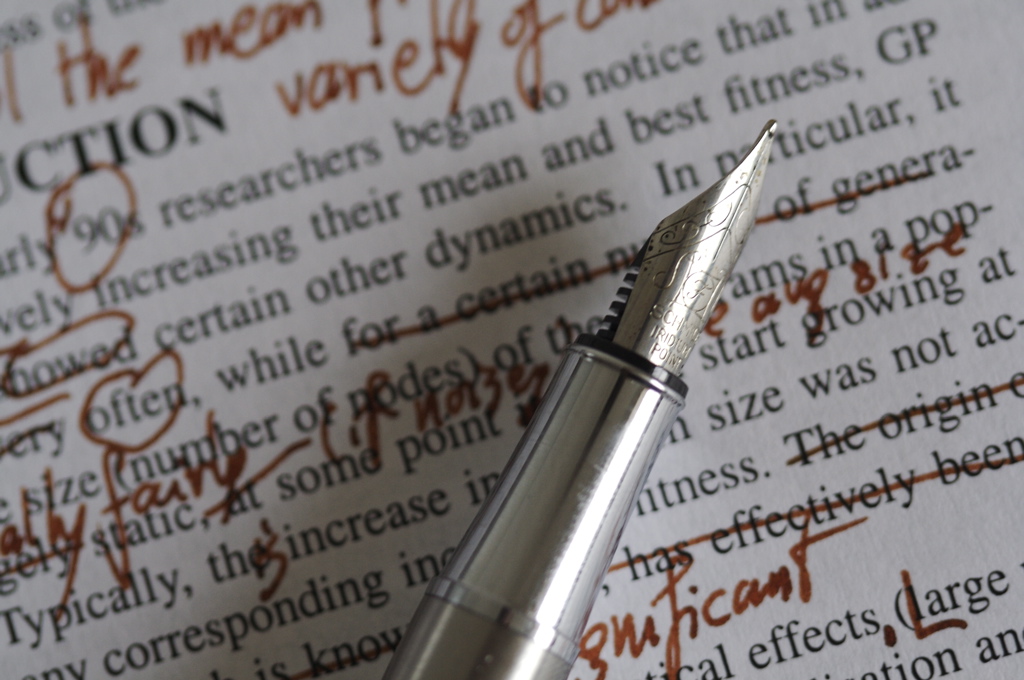The manuscript I sit down to write is never the paper I end up writing. I wish someone had told me that long ago—and made be believe it—because I might have spent more time learning how to write before my life started to depend on it. Now, I have no choice but to learn as I go.
The younger me never knew that writing is the stuff of science: It is the overture, the theme, and the development. The success of reports, proposals, and papers all hinge on one's ability to write, to write fast, and to write a lot. The data might tell a story, perhaps, but no data-driven story can step past its fundamental limitations. What does it all mean? This question, I think, drives scientific writing.
So, what I have been doing lately is let the writing process do the work. I draft, I edit, and I edit some more. After a short break, I'll keep editing: I'll rewrite paragraphs, move sections around, change the abstract, and even throw away pages of text if what is on them is sufficiently awful. After that, it's the coauthors' turn; hack it to pieces and put it back together again. Repeat.
Slowly, this process gives birth to something cohesive. You just have to take away everything that isn't a good idea.
